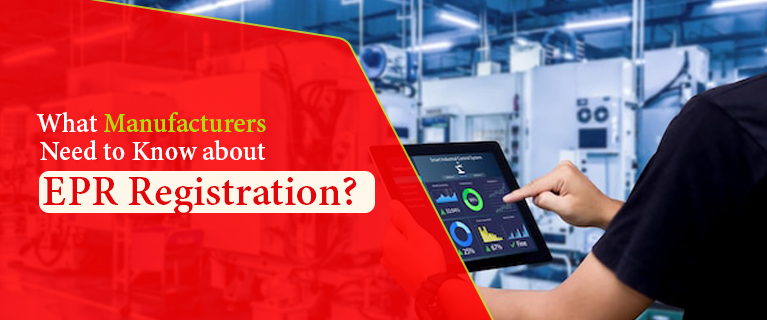The Importance Of EPR Certification In Sustainable Waste Management
Sustainable waste management is a pressing global issue that demands effective solutions. One of the crucial mechanisms in this regard is Extended Producer Responsibility (EPR) certification. EPR certification holds manufacturers and producers accountable for their products throughout their lifecycle, including disposal and recycling. In this blog, we will explore the importance of EPR certification in sustainable waste management. By examining its benefits for the environment, society, and the economy, we can better understand the significance of EPR certification as a catalyst for positive change.
1. Environmental Preservation and Resource Conservation
EPR certification plays a pivotal role in environmental preservation and resource conservation. By shifting the responsibility onto manufacturers and producers, it encourages them to adopt sustainable practices throughout the product life cycle. EPR-certified entities prioritize waste reduction, reuse, and recycling, thereby minimizing the extraction of virgin resources and reducing the strain on ecosystems. This approach leads to a significant reduction in carbon emissions, pollution levels, and the depletion of natural resources. By emphasizing sustainable production and resource conservation, EPR certification helps mitigate the environmental impact of consumer goods and fosters a more circular economy.
2. Effective Waste Management and Recycling
One of the core objectives of EPR certification is to improve waste management systems and promote recycling. EPR-certified manufacturers and producers are required to establish effective collection, segregation, and recycling mechanisms for their products. This ensures that waste is properly managed and diverted from landfills. By implementing efficient recycling processes, valuable resources can be recovered, reducing the need for raw material extraction and minimizing waste generation. EPR certification encourages the development of robust recycling infrastructures, fostering the growth of a circular economy where materials are reused and recycled, thereby reducing waste and conserving resources.
3. Encouraging Sustainable Product Design and Innovation
EPR certification drives sustainable product design and innovation. By holding manufacturers and producers accountable for the environmental impact of their products, EPR certification encourages them to prioritize eco-friendly design principles. Certified entities are incentivized to develop products that are easily recyclable, made from renewable or recycled materials, and have minimal negative impacts on the environment. EPR certification also encourages the implementation of green manufacturing processes and the use of cleaner technologies. This emphasis on sustainability spurs innovation in the development of eco-friendly alternatives, helping to create a market for greener products and driving industry-wide shifts toward sustainable practices.
4. Cost-Efficiency and Economic Benefits
EPR certification brings about cost-efficiency and economic benefits for manufacturers, producers, and society as a whole. While implementing sustainable waste management practices may require initial investments, the long-term benefits outweigh the costs. By optimizing material use, reducing waste generation, and adopting recycling initiatives, companies can save on raw material expenses, waste disposal fees, and regulatory compliance costs. Moreover, the growth of the recycling industry and the development of a circular economy create new employment opportunities and contribute to economic growth. EPR certification can also enhance brand reputation, attracting environmentally conscious consumers and expanding market reach, thus stimulating business growth.
Read Also This - Benefits of EPR Certification for Manufacturers and ProducersConclusion
EPR certification plays a vital role in sustainable waste management by shifting responsibility onto manufacturers and producers. It fosters environmental preservation, resource conservation, and effective waste management practices. Through sustainable product design and innovation, EPR certification promotes eco-friendly alternatives and drives industry-wide shifts towards sustainability. The economic benefits, such as cost-efficiency and market expansion, further strengthen the case for EPR certification. By embracing EPR certification, companies can contribute to a more sustainable future, reduce their environmental footprint, and foster a circular economy that prioritizes the responsible management of resources and waste.




Comments
Post a Comment